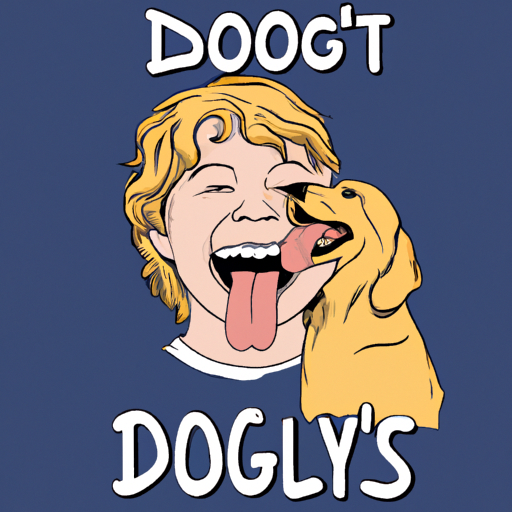Have you ever leaned in to give your dog a warm hug, only to be greeted by a slobbery, wet kiss? As a dog lover, you’ve likely experienced this. But, have you ever wondered, why do dogs lick people’s faces? It’s a question that has intrigued many dog owners and animal enthusiasts alike. This article will dive into the reasons behind this behavior, explore the psychology of dogs, and provide some practical tips on how to respond when your dog decides to shower you with their affection.
- Understanding Canine Behavior
- The Science Behind Licking
- Why Do Dogs Lick Human Faces?
- How to Respond to Face Licking
- Frequently Asked Questions
Understanding Canine Behavior
Before we delve into the specifics, it’s important to understand the basic principles of canine behavior. Dogs communicate differently than humans, using body language, vocalizations, and certain behaviors to express their feelings and intentions. One such behavior is licking.
Licking serves several purposes in the canine world. It’s a natural behavior that dogs learn from birth. In fact, mother dogs lick their puppies as a way to clean them and stimulate their bodily functions. Puppies, in turn, lick their mother’s mouth to encourage regurgitation as a method of weaning. This early interaction sets the tone for licking as a form of communication throughout a dog’s life.
The Science Behind Licking
Licking releases pleasurable endorphins which gives dogs a sense of comfort and pleasure — like the feeling people get when they are biting their nails — it relieves stress. OneTopDog provides a great article on how to understand your dog’s body language, and how various behaviors, including licking, can be a way to communicate their feelings.
Why Do Dogs Lick Human Faces?
Now, let’s get to the heart of the matter. Why do dogs lick people’s faces? There are several reasons:
- Affection: Dogs often lick people they like as a sign of affection, similar to how humans hug or kiss their loved ones.
- Submissiveness: In the wild, wolves and other canines lick the faces of their superiors in the pack as a sign of submission and respect.
- Attention: Dogs might lick your face simply to get your attention. They might want to play, go outside, or just have some petting.
- Taste: Yes, taste! Humans can be salty and dogs might enjoy this flavor. They might also be attracted to the remnants of your last meal.
How to Respond to Face Licking
While face licking might be a natural behavior for dogs, not all people appreciate it. If you’d prefer your dog not to lick your face, there are steps you can take to discourage this behavior. OneTopDog provides some practical advice on how to train your dog to stop unwanted behaviors.
However, if you don’t mind your dog licking your face, you can allow it in moderation. Just make sure to keep your dog’s mouth clean and healthy to avoid any potential health risks. A quick visit to OneTopDog’s guide on dental care for dogs can provide useful tips on how to maintain your dog’s oral hygiene.
Frequently Asked Questions
-
Is it safe for a dog to lick your face?
Yes, in most cases, it’s safe for a dog to lick your face. However, dogs explore their environment with their mouths and could pick up bacteria or parasites that could cause illness. It’s always best to keep your dog’s mouth as clean as possible and avoid face licking if you have open wounds or sores. -
Does face licking mean my dog loves me?
While we can’t say for certain what dogs feel, face licking is a sign of affection from your dog. It’s their way of showing you that they feel comfortable and secure with you. -
How can I stop my dog from licking my face?
If you want to stop your dog from licking your face, try redirecting their behavior. When they go to lick your face, redirect them to a toy or give them a different command. With consistency, they’ll learn that face licking isn’t acceptable.
In conclusion, dogs lick people’s faces for a variety of reasons, from showing affection and seeking attention to simply enjoying the taste. Understanding this behavior can help you better connect with your furry friend and ensure a happy, healthy relationship.



